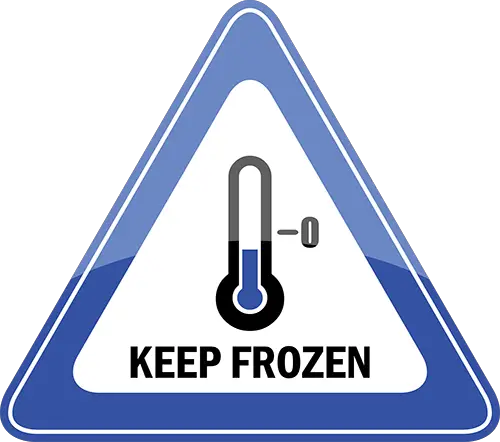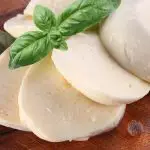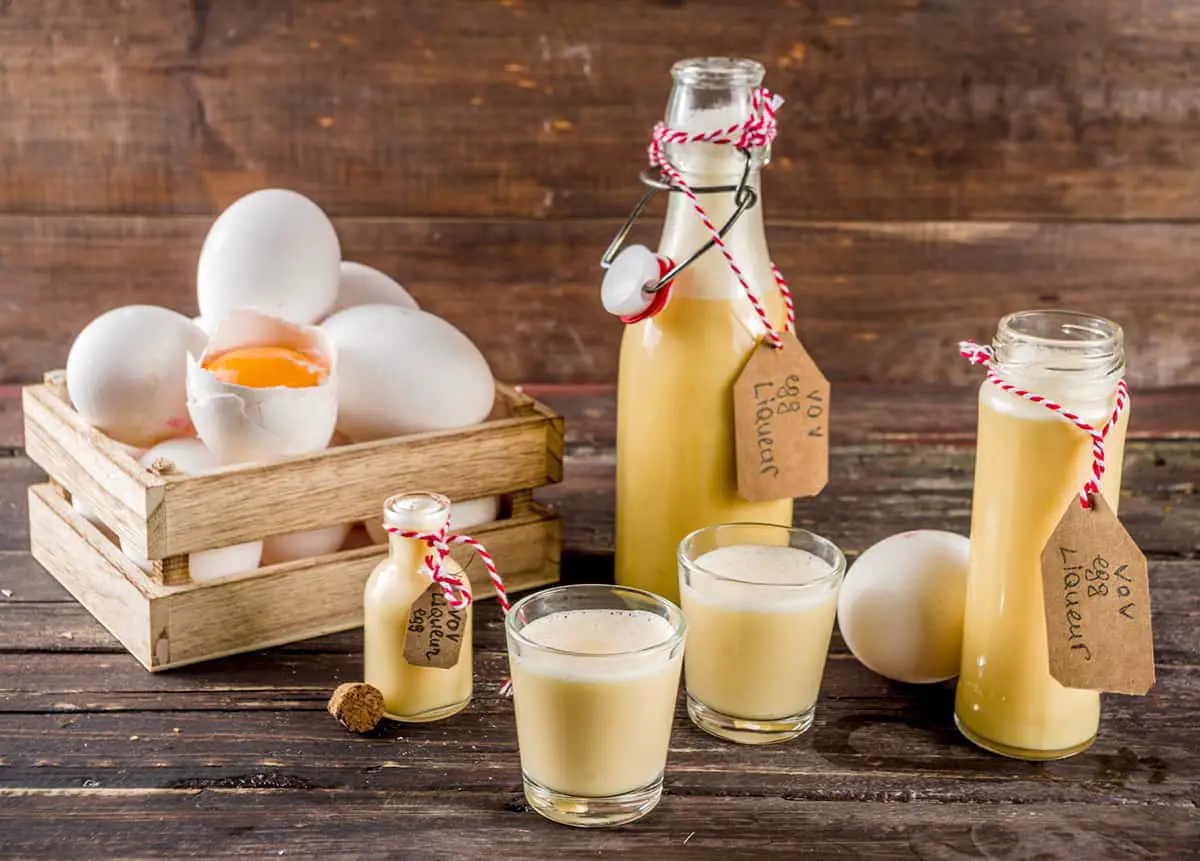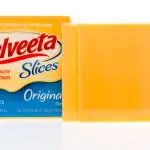Freezing Vegan Cheese (What You Need to Know)
Many people have been choosing to consume dairy-free alternatives in recent years, including dairy-free alternatives to cheese. Vegan cheese has evolved over the last few years and is very similar to real cheese, but can you freeze it?
You can freeze vegan cheese, but not all vegan cheese remains the same when defrosted. Hard vegan cheese is the most appropriate type to freeze because the taste and texture don’t change much when defrosted. Soft vegan cheese can also be frozen, but its texture and other characteristics may change.
This article will give additional helpful information on freezing vegan cheese, which cheeses are best to freeze, how to freeze vegan cheese, and why it’s beneficial to freeze it. Be sure to keep reading to learn more.
Which Types of Vegan Cheese Can You Freeze?
You can freeze all types of vegan cheese, but hard cheese is the best type to freeze, including vegan gruyere and cheddar. Since hard cheese has a more rigid texture, it’s more resilient to freezing temperatures and can often retain its original taste and texture more than softer cheese.
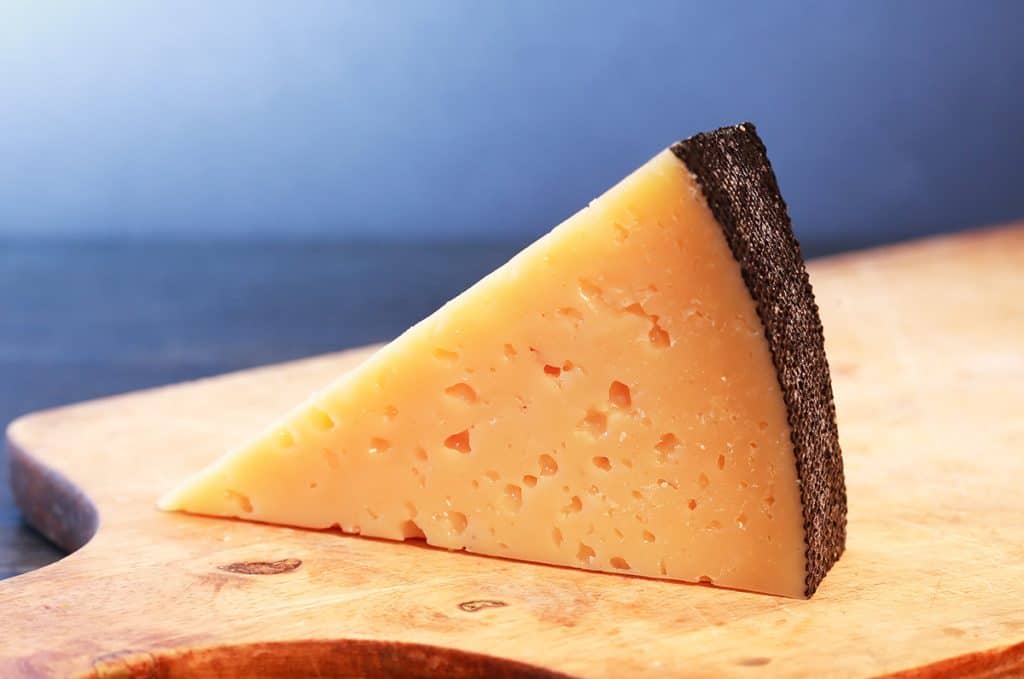
Vegan cream cheese is an example of cheese you shouldn’t freeze, as it should have a soft, creamy texture. Once frozen, it loses that spreadable texture that it’s known and used for.
Although softer vegan cheese can also be frozen, the freezing temperatures impact its texture more easily. Since freezing causes ice crystals to form, it can make the vegan cheese more dry and crumbly.
This can subsequently make the cheese less enjoyable to eat because it no longer has the proper texture. I would only recommend freezing soft vegan cheese if you plan to use it as an additive in a meal, such as pasta or a salad.
If you freeze soft vegan cheese and then eat it on its own, you’ll notice how different it feels and tastes. However, incorporating it into a meal will make the change in texture much less noticeable.
How To Freeze and Defrost Vegan Cheese
Freezing and defrosting vegan cheese is much like freezing and defrosting regular cheese, so thankfully, it’s pretty simple. Below are the steps on how to do it effectively.
1. Determine How Much Cheese You Want To Freeze
The first thing to do is determine how much vegan cheese you want to freeze. If you only want to consume a small amount at a time, it’s best to freeze smaller portions.
If you freeze a large portion of vegan cheese, it’ll need to be defrosted all at once and will also need to be consumed once it’s defrosted. Since vegan cheese shouldn’t be re-frozen, you may run the risk of wasting some of it if you freeze too much and can’t consume it all.
2. Divide Your Vegan Cheese Into Portions
I would always recommend freezing your vegan cheese in different portion sizes, depending on how much you plan on using. The best way to divide your vegan cheese before freezing it is by using freezer bags or any other product that allows you to remove most of the air and seal the cheese in.
By sealing the cheese in and removing as much air as possible, you’re making it more difficult for bacteria and other unwanted particles to get onto your vegan cheese.
3. Let Your Vegan Cheese Freeze
Once you’ve put your vegan cheese into freezer bags or containers, you can put it in the freezer and let it be. The reason for this is that if you don’t let it freeze completely, take it out, then put it back in the freezer, it could develop ice crystals. This is not good for the cheese, and will not create good-tasting food.
Once you’re ready, you can take it out for defrosting.
4. Defrost Your Vegan Cheese
There are different ways to defrost your vegan cheese. My favorite way to defrost it is to leave it fully covered on my countertop so that it can defrost at room temperature. By doing it this way, the cheese usually defrosts within three or four hours.
You need to be careful if you decide to defrost your vegan cheese at room temperature because it might spoil if you leave it for too long. It’s also essential to keep it covered while defrosting so that nothing harmful can get onto it.
Another way to defrost vegan cheese is by taking it out of the freezer and putting it straight into the refrigerator. This method takes longer, so it may not be ideal if you’re in a rush.
However, it’s safer than defrosting at room temperature because it’ll take much longer for the cheese to spoil in the fridge.
Another way to defrost vegan cheese, which I don’t highly recommend, is to use a microwave. I don’t particularly like using a microwave because it can ruin your cheese if you leave it just a few seconds too long.
Once the cheese has melted, there’s no way to get it back to normal. If using a microwave, you need to watch it closely.
Although it’s not the best method, using a microwave to defrost vegan cheese is viable if you need to use it as soon as possible.
Does Vegan Cheese Change After Being Frozen?
Vegan cheese changes after being frozen. Freezing hard vegan cheese can cause slight changes in texture, but freezing soft cheese causes more significant changes. These changes include dryness, crumbliness, and changes in taste.
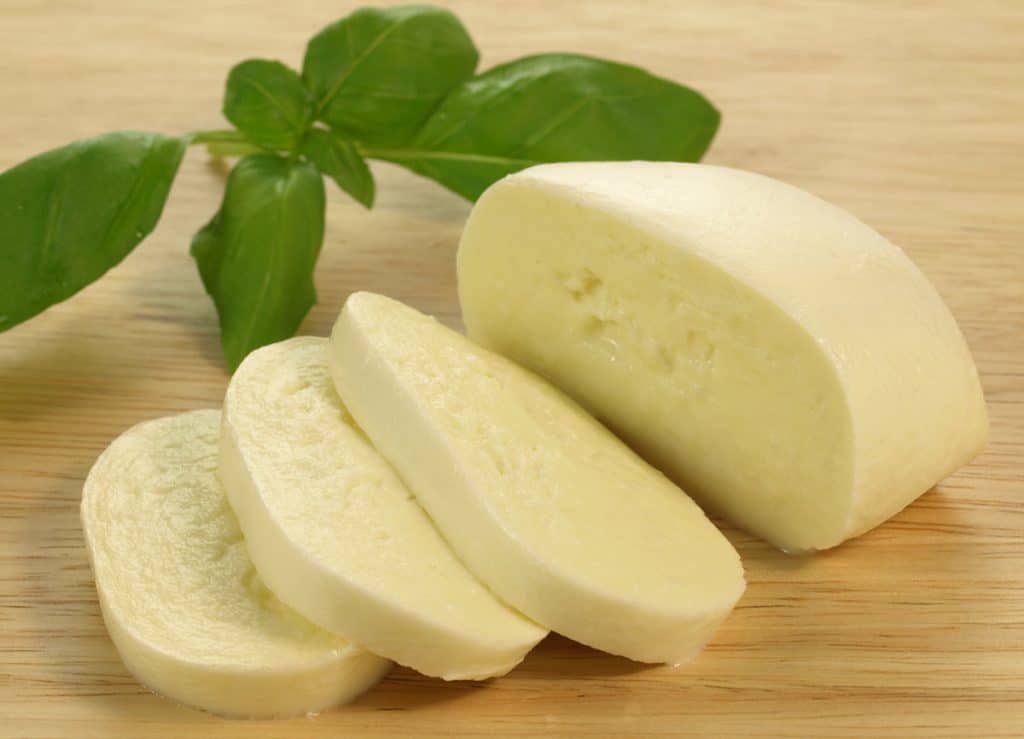
If you want to retain the original taste and texture of vegan cheese when it’s fresh, freezing it might not be the best choice. However, freezing shouldn’t be an issue if you want to use it later in a recipe or mix it with pasta.
To put it simply, freezing vegan cheese will change the texture in most cases. So, if you don’t have a problem with that, you should consider freezing it for future use!
What Can Defrosted Vegan Cheese Be Used For?
Once you have defrosted your vegan cheese, you can use it in different recipes, as a garnish, or as a part of a salad or toppings on a pizza. Basically, you can use it in any dish that you would use dairy cheese for.
Here are the details on how you can use a defrosted vegan cheese:
- In cooking: Many recipes require cheese or vegan cheese, and it’s perfectly acceptable to use cheese that has been frozen for this.
- As a garnish: You may want to garnish some dishes with vegan cheese, such as lasagna. Using defrosted cheese is excellent for this.
- As part of a salad: Mixing defrosted vegan cheese with salad is a great way to add extra flavor and texture.
- Mixed in with pasta: Another great way to use defrosted vegan cheese is by mixing it in with pasta.
What Shouldn’t Defrosted Vegan Cheese Be Used For?
Although you can use vegan cheese for many things after it’s been frozen and defrosted, there are other things that it isn’t as suitable for. Once you freeze your vegan cheese, it becomes drier and flakier.
Defrosted vegan cheese should not be used by itself or as a spread. You’ll notice the difference quite quickly and most likely won’t enjoy it as much as when it’s fresh. A once smooth and easily spreadable cheese is now dry and crumbly after freezing, so it’s not ideal.
Can You Freeze Vegan Cheese More Than Once?
If you’ve frozen a portion of vegan cheese and then realized you’re not going to eat it all at once, you might be wondering if you can re-freeze it.
You shouldn’t freeze vegan cheese more than once. Since the cheese already loses much of its nutrients and texture after freezing it the first time around, freezing it again will only damage it further. By refreezing vegan cheese, the quality drops significantly.
Therefore, it’s crucial to plan how much vegan cheese you want to freeze and defrost at one time to prepare and reduce waste.
Is It Safe To Freeze Vegan Cheese?
It is safe to freeze vegan cheese, as it doesn’t pose any health risks. Freezing is a helpful way to preserve and use vegan cheese rather than throwing it away. Not only is it safe to freeze vegan cheese, but it’s also beneficial because it prolongs its shelf life and helps to reduce food waste.
Freezing also helps prevent harmful bacteria from growing on your vegan cheese, so it’s a great long-term storage solution.
It Might Be Possible for Frozen Vegan Cheese To Go Bad
Since you can freeze regular cheese indefinitely, the same can be said for vegan cheese. If your freezer is functioning correctly, you can keep your vegan cheese frozen for as long as you wish.
However, the longer you keep it frozen, the more the flavor and texture will change.
To ensure your cheese retains some quality, I recommend freezing it for no longer than six months. Although it doesn’t go rancid or spoil after six months, it won’t taste as good, and the texture will be quite different.
How To Make Sure Frozen Vegan Cheese Isn’t Spoiled
If your vegan cheese has been in the freezer for a while, it’s most likely safe to eat. However, if you’re worried that it might be rancid, there are some things to look out for. Two of the main signs of rancid vegan cheese are mold and a strong odor.
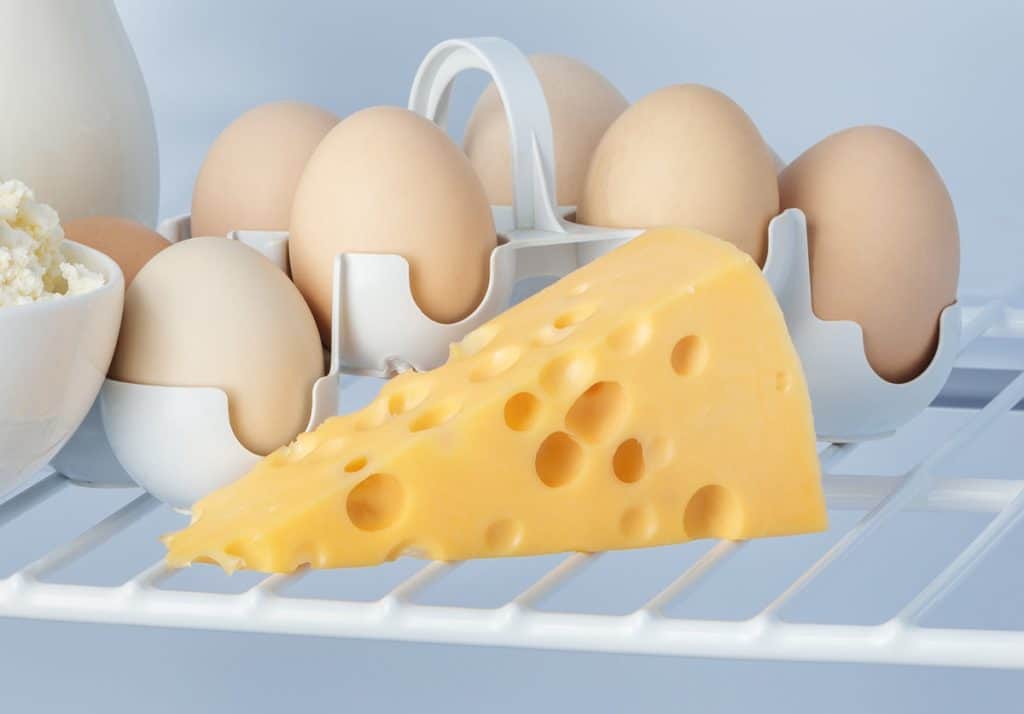
Generally, it’s not too difficult to tell when your cheese has gone rancid because the mold will be easily visible.
If it’s a hard cheese, you may even be able to cut off the bit with mold and use the rest of the cheese. However, if a large portion of the cheese is moldy or has a pungent odor, it’s best to dispose of it.
Other Ways To Store Vegan Cheese
Freezing is an excellent long-term storage option, but there are some other more short-term ways to store your vegan cheese.
The most common way to keep it is in the refrigerator. Keeping vegan cheese in the fridge gives it a longer shelf life than keeping it stored at room temperature, so that’s my personal preference when it comes to storage.
It depends on the cheese and brand, but it’s generally a good idea to keep vegan cheese stored in the refrigerator rather than in a cupboard.
Benefits Of Freezing Vegan Cheese?
There are many benefits to freezing vegan cheese, including:
- The longer shelf life will lessen the chance of food waste.
- Ability to bulk buy, freeze, and then use the cheese as needed.
- Prevents harmful bacteria from growing.
- No additional preservatives are needed.
Final Thoughts
Freezing vegan cheese is a great way to preserve it and reduce food waste. It’s possible to keep vegan cheese frozen for months before consuming it, and it’s best to use defrosted vegan cheese for cooking or mix it with other ingredients.
Although freezing is effective, the main downside is the changes it makes to the taste and texture of the cheese. Since vegan cheese turns dry and crumbly after being frozen, it doesn’t taste great if eaten on its own.
If you plan to use vegan cheese for cooking some tasty recipes, freezing it’s a great long-term storage option!
